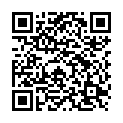|
|
|
| Module code: IBB-260 |
|
|
4VU (4 hours per week) |
|
5 |
| Semester: 2 |
| Mandatory course: yes |
Language of instruction:
English |
Assessment:
Academic paper
[updated 26.01.2020]
|
IBB-260 (P420-0228) International Business, Bachelor, ASPO 01.10.2020
, semester 2, mandatory course
|
60 class hours (= 45 clock hours) over a 15-week period.
The total student study time is 150 hours (equivalent to 5 ECTS credits).
There are therefore 105 hours available for class preparation and follow-up work and exam preparation.
|
Recommended prerequisites (modules):
None.
|
Recommended as prerequisite for:
|
Module coordinator:
Prof. Dr. Thomas Tinnefeld |
Lecturer:
Corinna Huth
[updated 06.03.2020]
|
Learning outcomes:
After successfully completing this module, students will:
● be familiar with the essential rules of academic writing
(e.g., citation techniques, the issue of plagiarism, information research,
● be able to actively use relevant academic resources,
● be able to make good use of written texts, i.e. by reading academic papers, to improve their academic English,
● be able to apply relevant content criteria for evaluating academic,
● be able to brainstorm facts and ideas, group them systematically and structure academic papers,
● be aware of and actively use the relevant rules of English academic writing,
● have improved their own academic writing skills,
● be able to write an academic paper of their own.
While doing so, students improved their ability to self-directed learning, self-reflection, and self-discipline.
[updated 06.03.2020]
|
Module content:
Consideration of two language skills (reading and writing)
Orientation to studentsí academic reality
Academic vocabulary, relevant grammar and formulaic expressions to be used in studentsí own academic writing
Relevant academic texts (e.g. abstracts, summaries of articles, book reviews, papers) to be used as learning materials and models
Academic techniques
[updated 27.01.2020]
|
Teaching methods/Media:
Presentations by the instructor
Group discussions
Group and partner work
Multimedia language lab activities
Presentations by students
Online resources
[updated 27.01.2020]
|
Recommended or required reading:
A detailed reading list will be provided at the start of the semester.
[updated 11.02.2020]
|

